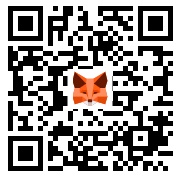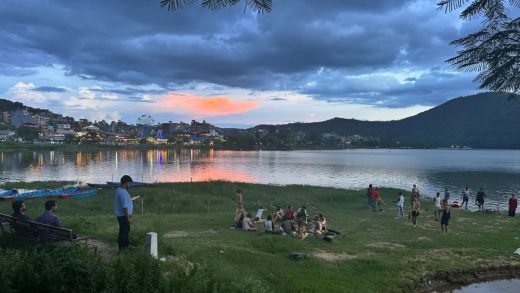
Using Travel Thinking in Entrepreneurship: How to Explore Business Opportunities like Exploring the World?
Problem Analysis: The Similarities between Entrepreneurship and Travel
Entrepreneurship and travel may seem like two completely different fields, but in fact, they share many similarities. Travelers need to explore the unknown world, face unfamiliar environments, and solve unexpected problems. Similarly, entrepreneurs need to seek opportunities in the business world, deal with uncertainties, and overcome challenges. The core of both is “exploration” and “adaptation”.
However, many entrepreneurs often fall into fixed thinking patterns when facing business opportunities and lack the open – mindedness and adventurous spirit of travelers. They may be restricted by established market rules or be too afraid of failure to try new directions. Therefore, how to apply travel thinking to entrepreneurship becomes a question worthy of discussion.
Solution: Five Methods to Explore Business Opportunities with Travel Thinking
1. Maintain Curiosity and Discover Hidden Opportunities
Travelers are always curious about the unknown. They actively explore off – the – beaten – path attractions, try local cuisine, and communicate with strangers. Entrepreneurs also need this kind of curiosity to discover unmet needs or overlooked niche markets in the market.
Suggestions:
– Communicate more with potential users to understand their pain points and needs.
– Pay attention to industry trends, but don’t be limited to mainstream views. Try to find opportunities in marginal markets.
– Learn cross – industry knowledge and draw on innovative models from other fields.
2. Embrace Uncertainty and Test Errors Quickly
In travel, plans often change, but travelers flexibly adjust their itineraries and even turn unexpected situations into pleasant surprises. Entrepreneurship is also full of uncertainties, and rapid error testing and iteration are the keys to success.
Suggestions:
– Adopt the “lean startup” method and use the minimum viable product (MVP) to test market reactions.
– Don’t be afraid of failure. Regard each failure as an opportunity to learn.
– Build an agile team culture that encourages quick decision – making and adjustment.
3. Observe and Record like a Traveler
Travelers record what they see and hear through taking photos, writing travel diaries, etc. These records often help them discover new perspectives. Entrepreneurs also need to develop the habit of observing and recording to find business opportunities from details.
Suggestions:
– Regularly review market data, user feedback, and the dynamics of competitors.
– Keep a “business diary” to record inspirations and thoughts.
– Share insights through social media or industry forums to attract like – minded people.
4. Build a Diverse Network of “Travel Companions”
Travelers usually travel in groups or interact with locals to obtain more information and support. Entrepreneurs should also build a diverse “partner network”, including investors, mentors, peers, and users.
Suggestions:
– Attend industry conferences, startup communities, or incubators to expand your network.
– Find a mentor or advisor to get experienced guidance.
– Build in – depth interactions with users and let them become “co – creators” of your product.
5. Enjoy the Process, Not Just Focus on the Result
Travelers often pay more attention to the experience during the journey rather than just reaching the destination. Entrepreneurs also need to learn to enjoy the entrepreneurial process and maintain their love and passion for their business.
Suggestions:
– Set阶段性 goals and celebrate small victories.
– Cultivate the team’s culture and values to make work more meaningful.
– Balance work and life to avoid over – exhaustion.
Case Study: Airbnb’s Entrepreneurial Story with “Travel Thinking”
Airbnb’s entrepreneurial story perfectly illustrates how to use travel thinking to explore business opportunities. In 2007, founders Brian Chesky and Joe Gebbia, unable to afford rent, decided to rent out the air mattresses in their home to tourists coming to San Francisco for a conference. This seemingly accidental idea stemmed from their keen observation of travelers’ needs.
Key Points:
1. Driven by Curiosity: They found that there was a lack of affordable and personalized accommodation options in the market.
2. Rapid Error Testing: The initial product was just a simple website, but through continuous iteration, they eventually created a globally well – known sharing economy platform.
3. User Co – creation: They personally hosted the first batch of users, understood their needs, and incorporated the feedback into product improvement.
4. Diverse Partners: By collaborating with designers and investors, Airbnb gradually expanded its influence.
Airbnb’s success proves that using travel thinking in entrepreneurship can not only discover unique business opportunities but also enable continuous learning and growth in the process.
Conclusion
Entrepreneurship is a journey full of unknowns, and travel thinking can help entrepreneurs face challenges with a more open, flexible, and optimistic attitude. Whether it’s maintaining curiosity, testing errors quickly, or building a diverse partner network, these methods can provide entrepreneurs with new perspectives and motivation.
Just as travelers don’t give up exploring because of getting lost once, entrepreneurs shouldn’t stop moving forward because of a single failure. Use travel thinking to explore business opportunities, and you’ll find that the boundaries of the world and business are much broader than you imagine.
旅行思维做创业:如何像探索世界一样探索商业机会?|创始人Q&A
- Startup Commentary”Three post-2005 entrepreneurs are reported to have secured a new financing of 350 million yuan.”
- Startup Commentary”Retired and Reemployed: I Became Everyone’s “Shared Grandma””
- Startup Commentary”YuJian XiaoMian Breaks Issue Price on Listing: Where Lies the Difficulty for Chinese Noodle Restaurants to Break Through in the Market? “
- Startup Commentary”Adjusting Permissions of Doubao Mobile Assistant: AI Phones Are a Flood, but Not a Beast”
- Startup Commentary”Moutai’s Self – rescue and Long – term Concerns”





